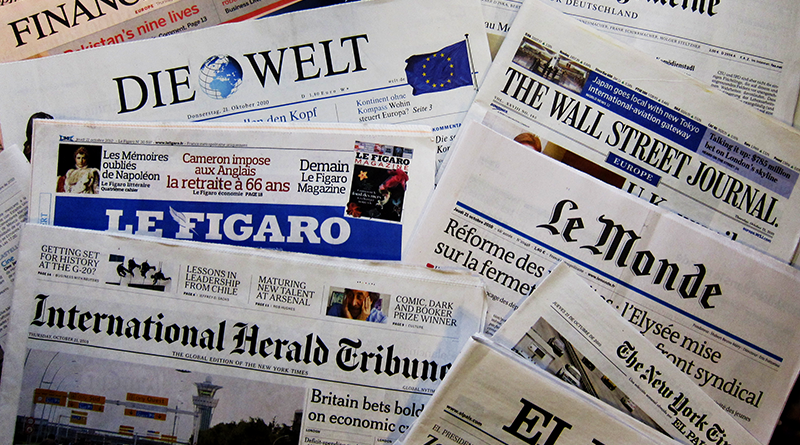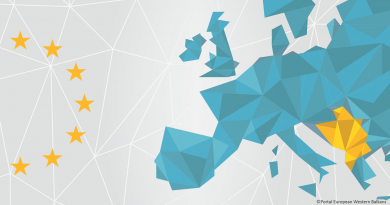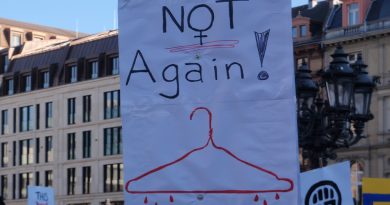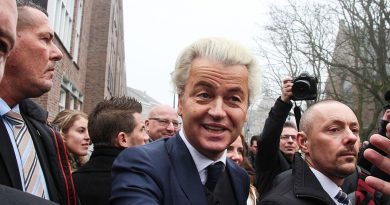This Week in the News (May 6, 2017)
The French Presidential elections and the EU
This week the French Presidential elections have taken over the news.
When we look for EU-related news – as I always do in my contribution to Changing World’s This Week in the News – we find that there is a strong overlap between the two. The consensus is that, regardless of the results, the EU’s future is on the line. For the EU, it’s either Le Pen’s Frexit, or Macron’s EU reform. Either way, according to Bloomberg, change is on the way.
Marine Le Pen, however, doesn’t appear to see things as such. During the latest and perhaps the most heated debate with her opponent, Le Pen (or Marine, as she now goes by) put the choice in different terms for Europe: either she would win, or German Chancellor Angela Merkel would. According to CNN, this position sought to both emasculate her opponent and play into the fears and pride of the French electorate.
Fearing the worst, EU Brexit chief Michel Barnier has publicly shown his support for the pro-EU candidate Macron, who has been branded as the French ‘Kennedy’ that appeals to the Erasmus generation. The renowned economist Paul Krugman has also made his position clear, by calling Le Pen “a racist extremist” and arguing that is she wins “we have the EU’s arrogance and bullying to blame”.
Russian interference?
Later this week, in a move not unlike last year’s US Presidential election, Macron’s campaign emails have been the target of a hack just days ahead of the election. While this leak’s impact is still impossible to prevent, its timing is clearly not accidental, as it seeks to destabilize Macron’s clear advantage. According to Politico, “the U.S. fingers immediately pointed toward hacker groups linked to the Russian government, which has embraced Le Pen”.
The same news outlet published an article citing Russian ambassador to the EU Vladimir Chizhov’s claims that the “Kremlin isn’t trying to destabilize the EU”, and that frequent claims that Russia is attempting to undermine the West by meddling in European elections is simply “a throwback to the Cold War”. The ambassador claims, instead, that he believes that there is simply a contest of “values” between Russia and the West.
The EU’s waning soft power
The fact is that the EU is tired and lacking moral authority due to the various crisis it has been facing, like the Brexit, the refugee crisis, and an increase in euroscepticism.
In a piece published by Reuters, the representative of Finland to the EU described fellow diplomats as “doctors and welders”, trying “to sew things up” in the world, whereas another EU representative claimed that “we have not lost all our soft power, but we do feel our moral authority is not as strong as it used to be.”
The Mediterranean refugee crisis continues
According to the South China Morning Post, the ‘made in China’ label on rickety boats used to smuggle migrants into Europe is being called to attention, as EU commissioner for Migration, Home Affairs and Citizenship Dimitris Avramopoulos asks China to shut down this product’s supply in an attempt to curb smugglers’ options.
Another strategy employed by the EU to halt the flow of refugees and migrants into Europe has also been on the news lately: German foreign minister and Vice Chancellor Sigmar Gabriel has criticized the EU’s attempt to prevent refugees crossing the Mediterranean by holding them in Libya, as that would leave thousands of people in “catastrophic conditions”.
![]() This work is licensed under a Creative Commons Attribution-NonCommercial-ShareAlike 4.0 International License.
This work is licensed under a Creative Commons Attribution-NonCommercial-ShareAlike 4.0 International License.




